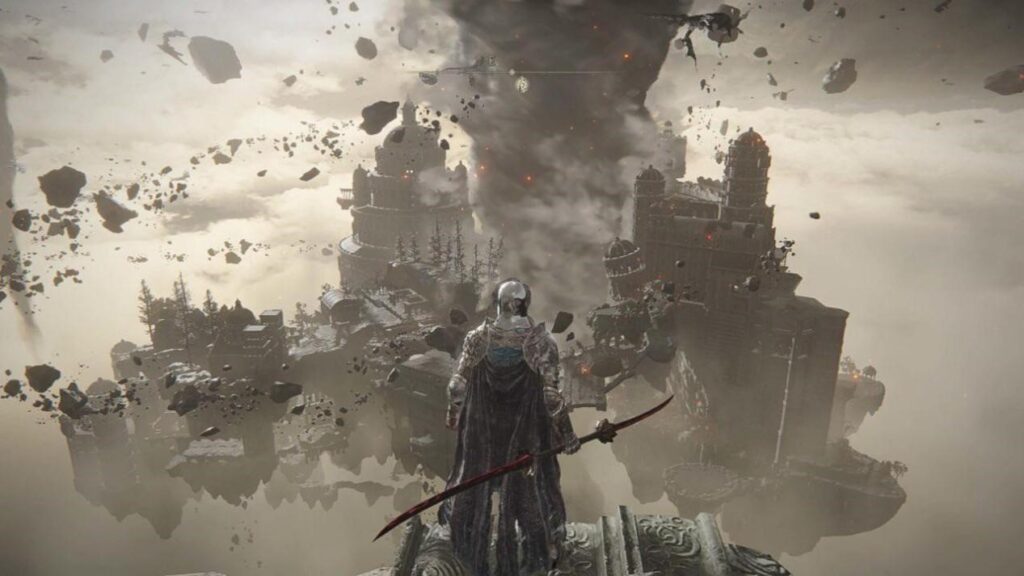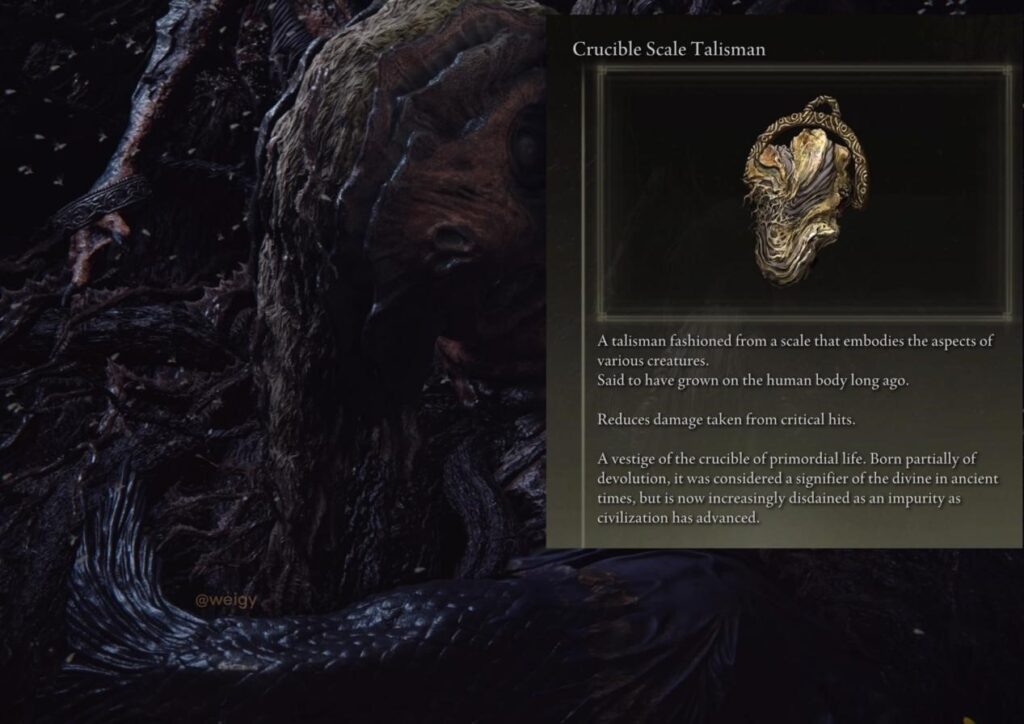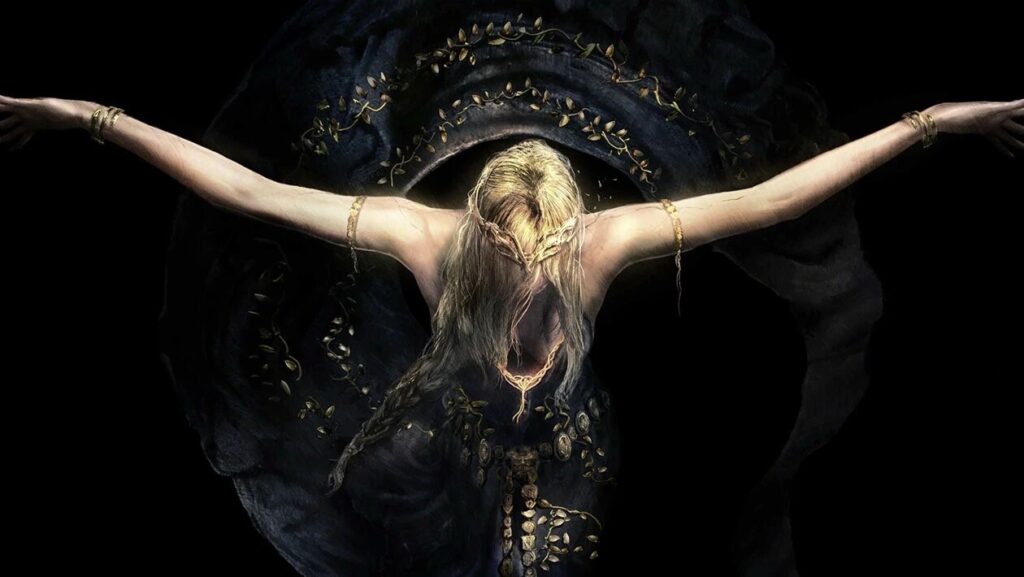Since the release of Elden Ring DLC trailer, we’ve spent the past month exploring the game’s mysteries and lore. While there are many themes explored through the descriptions of Elden Ring items and plot points, today we’re solving perhaps the biggest unexplained mystery of all: the statue found behind Maliketh’s arena. Unveil this mystery could provide insights into major plot points in the DLC.
Farum Azula
When the player first arrives in Farum Azula, the one thing they’ll notice right off the bat is the stark difference in architecture compared to the rest of the Lands Between.
Not only is it a city floating in the sky, held in suspension by various storms, but compared to the other cities and castles found in the Lands Between, Farum Azula’s architectural style is entirely different, suggesting that the inhabitants of this place adopt a different culture than the primary societies of the Lands Between.

Now, when we actually see who inhabits Farum Azula in the present time of the game, it’s a combination of Beastmen, exiles, and dragons. But there’s clearly a story of history, one that we currently lack the full picture of.
When the player reaches Maliketh’s boss arena in the main temple of Farum Azula, these are aspects that need to be considered, as naturally seeing the statue in the back will raise plenty of questions. So, it’s essential to buy Elden Ring Runes in advance with a sufficient amount.
Statue Behind Maliketh’s Arena
At the back of the arena, there is a statue of a girl surrounded by 3 wolves. The girl is kneeling down in prayer while the wolves are snarling and circling her. Her hair is braided with a little decorative piece on top of a flowering branch, while the robes that are on her appear to be plain and lacking any sort of obvious pattern.
But the most curious part of the statue is the Elden Ring symbolism that we see directly above it. We can see an entirely unique depiction of the Elden Ring, unlike anything else in the game. It seems to be much more than just a statue.
Who Is The Girl In Statue?
The question we now need to be focusing on is: Who is this girl in the statue? Let’s entertain the idea for a minute that this statue is depicting a character we know of in the lore. The Empyreans that we know of in Elden Ring’s lore are Queen Marika, Ranni, Mika, Malenia, and the Gloam-Eyed Queen.
However, the statue is depicting what looks to be a child, which Mika was forever cursed to be, and he’s enough of an enigmatic figure in the lore that there could still be plenty of stories there that we don’t know about.
The Crucible Talismans
Farum Azula represents time, primarily history, a place calling back to an age of pre-evolution where beasts and dragons ruled. A thread that ties all of that together is the Crucible, a concept said to be the place where all life converges and the Erdtree in its primordial form. The Crucible Feather, Scale and Knot Talismans are all items that comprise the denizens of Farum Azula.
So, if a version of the Elden Ring specific to Farum Azula is a primordial depiction of that Crucible, and given that we have an example of someone who was once an Elden Lord here in Farum Azula, I think the most likely possibility of this Elden Ring shape was his order, this untamed crucible of life throughout a prehistoric age.

Queen Marika
Now we get into interesting territory when we consider that the statue might be Queen Marika, and given the new context of the DLC, there are a lot of possibilities. As we dive into this, we need to bring some Elden Ring Runes for sale. First, let’s talk about what we know is going to be a major plot point of the DLC: that being Queen Marika’s past and her journey to godhood.
Miyazaki confirmed that this is one thing that we’ll be uncovering as we explore the Land of Shadow, stating that it’s the place she became a god and where the Erdtree was born. We have a connection to the Elden Ring and, more importantly, the Crucible, as the Crucible is the primordial form of the Erdtree in its first stages of life.
Now, what does that mean for the statue? Assuming it is of Queen Marika, the statue likely depicts her before her ascension to godhood, during her time as an Empyrean, in the state of the Elden Ring and in the order of the world prior to her designs. And given that Maliketh is her Shadow-bound beast, the statue may serve as a reminder of his duty and his job to protect Destined Death.

But even if that’s not the meaning of the statue, those are things we’re going to learn about in the DLC, so it’s worth delving into further. I’m glad that’s a topic that’s going to get touched on because there are so many holes in the lore and so many mysteries to be further explained, this statue being a prime example of that.

